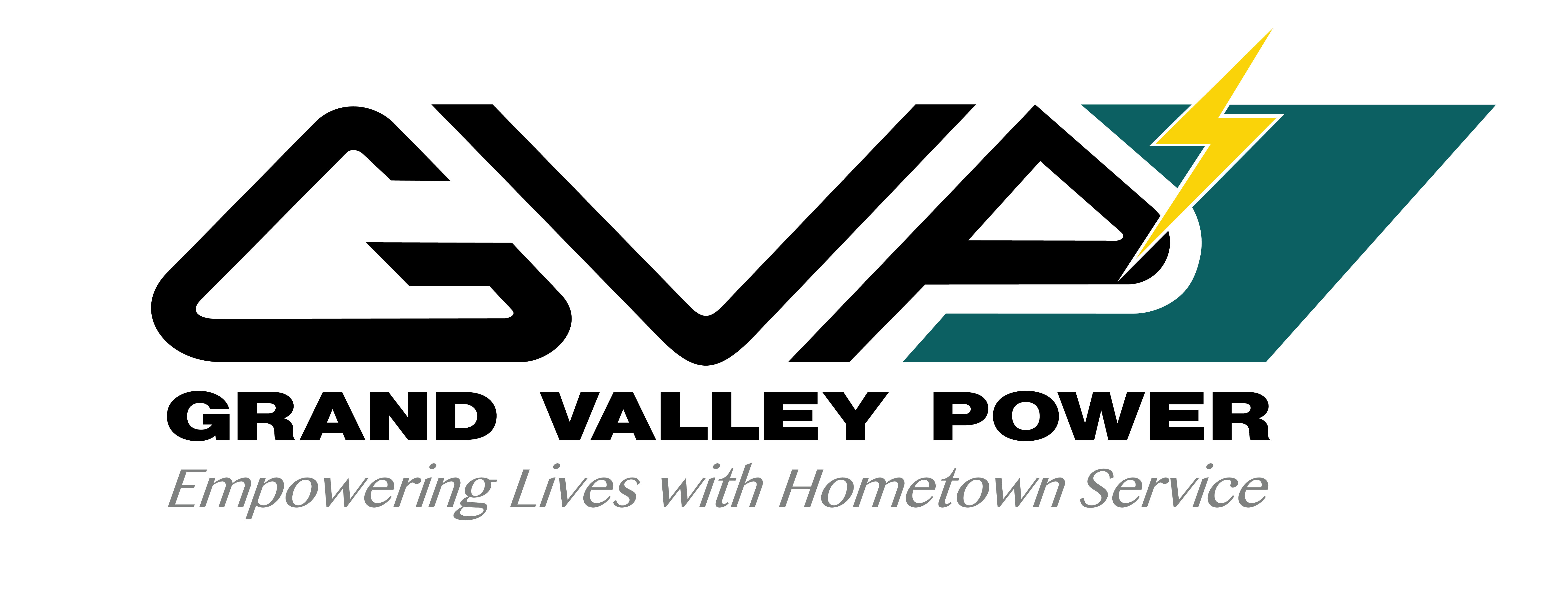Strength in Service
by Jim Hight, writer, research analyst, and consultant based in Buena Vista, Colorado
The worst of the Elk and Lee fires had been contained, but smoke still wrapped the hills of Rio Blanco County in northwestern Colorado when six linemen from Grand Valley Power arrived to help White River Electric Association rebuild its devastated grid and restore power to members.
After a WREA lineman told them where to deploy, they loaded their trucks with poles and wires and drove into a scene from a disaster movie. "Everything was burned black, and the wind was blowing ash everywhere," recalled Preston Dillingham, GVP line foreman. The hillside was so steep, they couldn't use their digger derrick to replace burned poles but had to improvise with an excavator.
This what the first morning of what turned into a grueling week of 14-hour days pulling wires by hand, climbing poles when their bucket truck couldn't access remote terrain, and avoiding electrocution when a de-energized power line came alive with induced voltage from a high-voltage transmission line overhead. They rushed through meals and bunked in shared rooms at a motel in Meeker.
Yet, Dillingham and his crew would do it again in a heartbeat.
"This was a special opportunity for them to serve in an emergency, to work in challenging conditions without the equipment they're used to, and to build camaraderie," said Grand Valley Power CEO Tom Walch.
"The days were long, but it was really cool how everybody came together as a team," agreed Dillingham. "And we all have stories to tell for years."
For White River Electric Association, Colorado's smallest electric co-op with just 27 staff, the tale of how Grand Valley Power and other cooperatives and affiliated groups rushed to its aid last August after fires destroyed about 400 poles and thousands of yards of electric conductors will no doubt be an enduring one as well. "It was pretty wonderful to receive the help that we did," said Brett Berthelson operations manager at WREA.
Nearby Yampa Valley Electric Association responded as soon as it had repaired the fire damage sustained by its own infrastructure. "We got our damaged poles and wires replaced within 36 hours, then we sent a four-man crew to White River with three trucks," said John Cromer, YVEA operations Manager.
In all, about 30 linemen showed up to help repair the fire damage on WREA's widely dispersed territory. "Every crew that showed up just dove in headfirst and got to work doing pole replacements," Berthelson said. Some stayed as long as three weeks.
The cooperatively owned Tri-State Generation and Transmission Association sent a team to rebuild high-voltage lines. And the Colorado Rural Electric Association Director of Safety and Loss Control Curt Graham was there doing everything from advising on safety matters to delivering lunches. "This is what the cooperative spirit is all about," Graham said. "No questions asked, we show up. I received calls from most of the co-ops in the state that asked, 'Curt, do they need any more help?'"
CREA helps coordinate the mutual aid program that enabled resources and personnel from other co-ops to stream quickly and efficiently into WREA's remote corner of the state. The Colorado electric co-op mutual aid agreement includes information on resources each co-op can provide – a feature that was exceptionally useful to YVEA when it was hammered by an intense snowstorm in 2023.
"We lost a lot of wire and poles, and we didn't have the equipment to travel across snow that was 4 to 8 feet deep," Cromer recalled. However, the mutual aid system enabled YVEA to reach out to a co-op that was accustomed to operating in severe winter weather: Mountain Parks Electric in Granby, where temperatures are below 0 degrees nearly 80 nights each year. "They brought in their snowcats so we could repair the damage," Cromer said.
"Knowing that your nearby co-ops – and any co-op in Colorado – will be there when you need them gives us a sense of security," Comer continued. "Co-ops are a family, and we all take care of each other." And as Comer pointed out, Cooperation Among Cooperatives is one of the seven guiding principles of electric co-ops.
Mutual aid is not free, however, and WREA is responsible for covering the salaries and other costs incurred by the co-ops that helped restore its grid. WREA will receive funding from FEMA if the federal government approves the state's request for a major disaster declaration to fund recovery efforts in Rio Blanco County. (It was pending when this issue went to press.) In the meantime, the co-op has established a line of credit with its lending institution. "We anticipate the costs will be large," said Berthelson.
All the repairs on WREA's distribution system serving homes, businesses, schools, and other institutions are complete. Its high-voltage transmission lines – with which the co-op powers oil and gas operations in its service territory – still need to be repaired. "We're currently feeding the oil and gas operators with our last contingency backup, a 138-kilovolt transmission line from the west," Berthelson said.
Costs aside, Berthelson reported that WREA staff, board, and community are extremely grateful for the help extended by neighboring co-ops in their time of need. "The crews who came to our aid were truly incredible," he said. "They understood what we needed and worked really hard until the job of repairing the distribution system was done."
